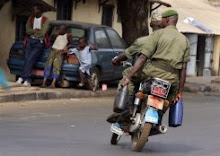“Liberia is building a new army and we are very strict regarding its standards,” says Lieutenant Eric Dennis, who teaches international humanitarian law to recruits. In a country where previous armies — government and rebel alike — committed widespread atrocities, he hopes to help build a new institution that “will never tarnish the image of our army and our country. We want an army of professional soldiers.”
Recruitment for the new army began only in 2006, and its 2,000 troops — some 100 of whom are women — are still being trained. Liberians are cautiously optimistic. A February 2008 opinion survey found that 55 per cent of Liberians polled expressed confidence in the army. That was less than the level of confidence in the national government and election system, but more than for the country’s banks or courts.
A few thousand kilometres away, in the Democratic Republic of the Congo (DRC), creating a new military is proving to be a more troubled process. Although UN peacekeepers and European advisers have sought to professionalize the force, there still have been incidents, especially in the troubled eastern provinces, of looting, rape and other abuses by troops.
“We soldiers are a reflection of the people, and therefore we must conduct ourselves so that the people see themselves in their army,” Lieutenant Colonel Georges Mukole told a group of Congolese officers. But that image, he admitted, is still “being fashioned.”
From South Africa to Burundi and Côte d’Ivoire, a number of other countries in Africa are also seeking to restructure and professionalize their armies, police and intelligence services. The process is fraught with difficulties, but is increasingly seen as vital for the continent’s long-term peace and stability. Continue
By Ernest Harsch
Source: Africa Renewal

No comments:
Post a Comment